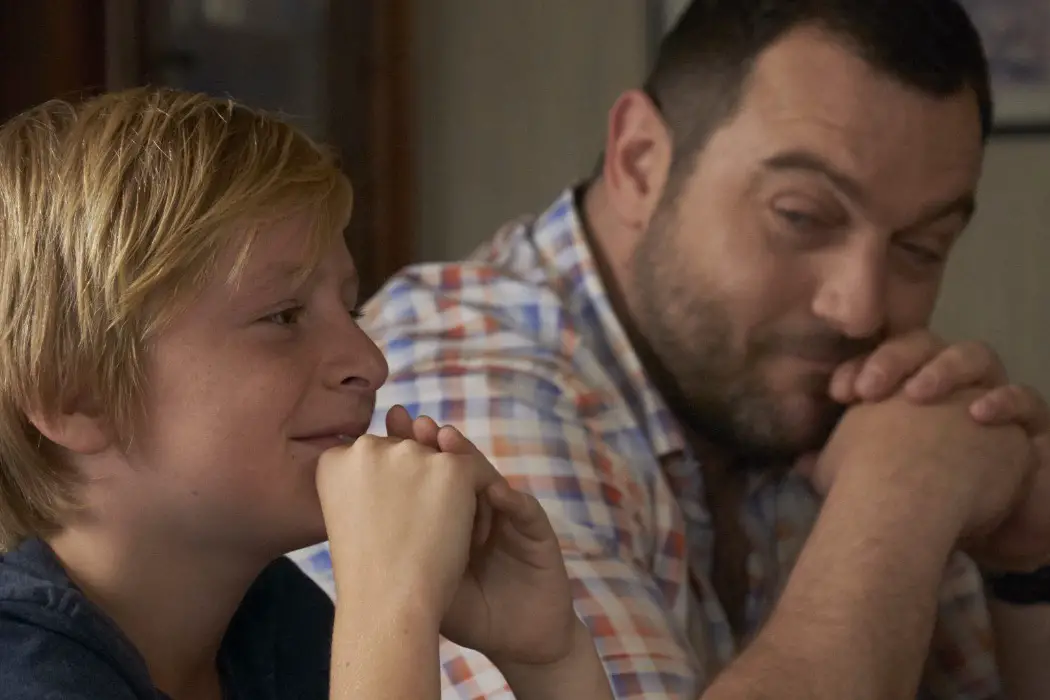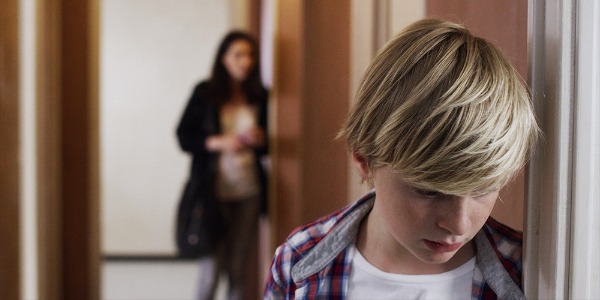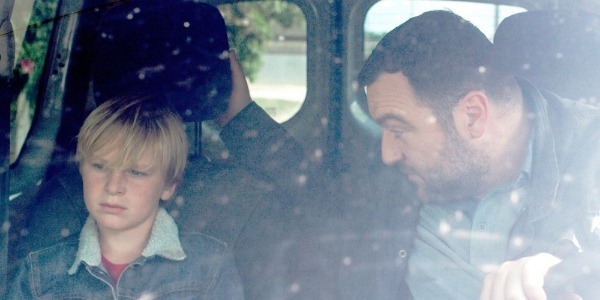CUSTODY: A Social Realist Take On The Home Invasion Thriller

Alistair is a 25 year old writer based in Cambridge.…
With his debut feature Custody, French director Xavier Legrand has crafted a taut domestic drama with the emotional turbulence of a thriller; every single moment feels perfectly calibrated to push the audience further into a state of unrest, while never sacrificing the overarching realism.
His film feels indebted to the recent works of Iranian director Asghar Farhadi, who at this stage might as well be considered cinema’s foremost chronicler of divorce and miserable relationships. Whereas Farhadi uses his character studies to comment on Iranian society, Legrand uses a disintegrated marriage to explore wounded masculinity, and the harm that can pass down between generations.
A probing examination of the fallout from an abusive marriage
Custody opens with a fifteen minute legal proceeding, bringing the audience up to speed with the situation with an elegance that doesn’t once threaten to feel like an abundance of introductory exposition. We are introduced to Miriam and Antoine (played by Léa Drucker and Denis Ménochet respectively), who are in the middle of proceedings to determine how much custody Antoine will receive.
It is alleged that he was an abusive husband, with a number of anger issues that has led his own children to give psychological statements as to why they don’t want to see him. In one of the film’s rare lapses into black humour, his lawyer responds that he doesn’t suffer from these violent issues by citing a personal statement from the shooting club where he’s a member.
Despite the claustrophobic setting of the opening sequence, this is the last chance the audience is afforded the chance to breathe easily until the end credits. A few weeks later, Antoine comes to pick up his 11 year old son Julien (Thomas Gioria), who remains traumatised to stunned silence after witnessing previous domestic disturbances caused by his father.
Of course, Antoine quickly shows very little interest in upholding the notions of what a parent should be and instead begins to manipulate his son in order to find out details about his former family’s new home, and the daily routine of both his son, older daughter and ex-wife, in order to weasel his way back in.

Custody is a feature length sequel to Legrand’s 2013 Oscar nominated short film Just Before Losing Everything – although I wasn’t aware of this until after seeing the film, so I can confirm it is just as effective without witnessing the events that led to the breakdown of the family unit in the first place.
If anything, Legrand is banking on the hope you haven’t seen his earlier short; the first act of the film brims with tension, as it isn’t immediately made clear as to whether Antoine is a monster, or is just being alleged as such in order to be refused custody.
If I had seen the short, this set-up and eventual deterioration of the character’s behaviour may have not been as effective, as it’s all but a given. He’s a ticking bomb ready to explode with his previous actions placed firmly in mind. Viewed on its own terms (as I imagine it will be for the majority of viewers, due to how hard it is to track down a copy of the short), there is no denying that the film is effective at creating a sense of dread from the offset.
An Actor’s Director in the making
With the exception of Thomas Gioria, replacing the original actor who played the son in the short, all the core cast members have returned for this feature. Undeniably, the most commanding performance in the film is that of Denis Ménochet, who manages to transform a character with bleakly realistic rage issues into one of the most memorable movie monsters in recent memory.
The prior short film dealt with the cumulative effects of the abuse upon his wife, but here, the relationship between him and his youngest child is the crux of the drama, making for a study on the effects of domestic abuse from a different, less explored angle – how it effects the child witnessing these horrors in the long run, forcing him into situations caused by his father’s warped masculinity that could (if real life precedents are to be believed) depressingly lead him down a similar path later in life.

As actions are being viewed from what is effectively Julien’s youthful point of view for the most part, Ménochet’s performance manages to be conventionally villainous without either sacrificing the film’s commitment to realism, or doing a disservice to the horrifying reality of domestic abuse. That the film works as well as it does is largely down to Thomas Gioria’s performance, which is one of the most accomplished child performances in recent memory.
From an early despondence to his living situation, to a terrifyingly realistic later sequence with his mother as they hide in a bathtub, I felt the bizarre urge to call the production company for confirmation that he was okay after being put through this. In only his debut feature, Legrand shows enough instinct in his collaboration with actors to be able to get realistic performances across the board in the tensest moments, a skill which is key to how his film manages to refrain from exploitation even as it flirts with thriller conventions.
This is most apparent in the later stages, as Legrand slowly builds up to a final sequence that transforms into a home invasion thriller, and again, shows the director utilising well-established genre conceits by downplaying them, managing to heighten the narrative tension without doing a disservice to the horrifying reality of life in an abusive household. Again, it may be disingenuous to label the film’s more tense moments as being of a piece with a more heightened genre; like all the best social realist filmmakers, Legrand’s awareness of storytelling conventions doesn’t detract from his film’s harrowing believability.
Custody: Conclusion
Custody is an impressive debut feature from Xavier Legrand, that manages to avoid exploitation even as it generates untold amounts of tension from a realistic domestic drama. The overall effect is likely to leave viewers gasping for breath, waiting for the sweet release of the end credits so they can breathe easily again. At just a whisker over ninety minutes, it’s exceptionally well paced, with not a moment wasted – but the accumulative effect is so harrowing, it might well be the best film that the majority of viewers will still spend hoping will immediately end.
Have you seen Custody? What did you think? Tell us your thoughts in the comments below!
Custody will be released in the UK on April 13, 2018. For all international release dates, see here.
Does content like this matter to you?
Become a Member and support film journalism. Unlock access to all of Film Inquiry`s great articles. Join a community of like-minded readers who are passionate about cinema - get access to our private members Network, give back to independent filmmakers, and more.
Alistair is a 25 year old writer based in Cambridge. He has been writing about film since the start of 2014, and in addition to Film Inquiry, regularly contributes to Gay Essential and The Digital Fix, with additional bylines in Film Stories, the BFI and Vague Visages. Because of his work for Film Inquiry, he is a recognised member of GALECA, the Gay & Lesbian Entertainment Critics' Association.













